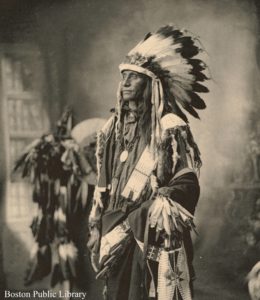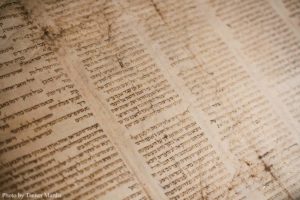History Without Hindsight
 Colonialism is often a theme in pop culture, effectively shaping public perceptions of history in ways that range from celebratory to critical. For example, Marvel’s Black Panther presents Wakanda as a technologically advanced African nation untouched by colonial rule, offering a potent “what-if” scenario that reimagines history. Meanwhile, the musical Hamilton reshapes the narrative of America’s founding, highlighting the complexities of revolution and leadership. These portrayals influence how we think about colonialism’s impact and legacy. In this article, I will examine my beliefs about colonialism, exploring how my education, experiences, and upbringing in western Montana have shaped them. I will then consider biblical perspectives on colonialism and how themes of conquest, exile, and justice appear in scripture, further shaping my convictions on colonialism. Finally, I will engage with Frank Furedi’s The War Against the Past[1], assessing how his work affirms and challenges my views and convictions.
Colonialism is often a theme in pop culture, effectively shaping public perceptions of history in ways that range from celebratory to critical. For example, Marvel’s Black Panther presents Wakanda as a technologically advanced African nation untouched by colonial rule, offering a potent “what-if” scenario that reimagines history. Meanwhile, the musical Hamilton reshapes the narrative of America’s founding, highlighting the complexities of revolution and leadership. These portrayals influence how we think about colonialism’s impact and legacy. In this article, I will examine my beliefs about colonialism, exploring how my education, experiences, and upbringing in western Montana have shaped them. I will then consider biblical perspectives on colonialism and how themes of conquest, exile, and justice appear in scripture, further shaping my convictions on colonialism. Finally, I will engage with Frank Furedi’s The War Against the Past[1], assessing how his work affirms and challenges my views and convictions.
Personal Beliefs and Their Origins
A combination of formal education, personal experiences, and exposure to historical narratives has shaped my understanding of colonialism. Growing up in western Montana, where two major Native American reservations are located to the north and south, I regularly interacted with Native Americans. I live in Kalispell, a Salish word meaning “flat land above the lake,” in Flathead County, named after a Native American tribe. I became familiar with their histories and the enduring impacts of colonial expansion. Just last week, I spoke with an elder from the Sioux Tribe about the ongoing political, economic, social, and cultural effects of the arrival of Western settlers, as well as the Federal Government’s inconsistent use of treaties to control his people.
and the enduring impacts of colonial expansion. Just last week, I spoke with an elder from the Sioux Tribe about the ongoing political, economic, social, and cultural effects of the arrival of Western settlers, as well as the Federal Government’s inconsistent use of treaties to control his people.
My formal and cultural education has led me to view colonialism primarily through the lens of displacement and cultural erosion. In school, my studies focused significantly on the American Revolution, a conflict often framed as a struggle against British colonial rule. The revolutionaries positioned themselves as resisting oppression but were also participants in a broader colonial framework. This paradox was something I did not fully understand as a student.
My visit to historic Williamsburg further reinforced my understanding of colonial life, although it primarily presented the perspective of European settlers rather than those who were displaced. I began to recognize a level of hypocrisy in the American Revolution. While fighting for their freedom and liberty, the colonists simultaneously seemed to disregard the rights and sovereignty of Native American tribes by encroaching on the lands they occupied and displacing their people.
Biblical Perspectives on Colonialism
In seeking a deeper understanding of my convictions, I turn to the Bible, which provides narratives of conquest, exile, and cultural encounters that resemble colonial dynamics. The Israelites, for example, were both colonized and conquerors at different points in their history. The Babylonian exile represents a
form of colonial oppression where a dominant power deported and sought to assimilate and control other people. Conversely, Joshua’s conquest of Canaan exhibits some characteristics of colonialism, where a group enters a land already inhabited by others, claiming it as their own through military force and displacing the existing population.

Jesus’ teachings highlight justice, mercy, and humility—values challenging colonialism’s coercive aspects. His engagement with marginalized communities and critique of oppressive power structures suggest an ethical framework prioritizing human dignity over domination. These principles invite me to consider how colonial legacies align with or contradict Christian teachings. I also reflect on the history of missional strategies and practices to consider whether they exhibit unhealthy signs of colonialism, promoting Western culture and values over Gospel culture and values.
Reflections on The War Against the Past
Frank Furedi’s The War Against the Past[2] has allowed me to critically assess my beliefs about colonialism. He contends the primary driver in today’s Culture Wars is an undeclared War Against the Past to cancel the legacy of Western Civilization.[3] He shows throughout the book that this is being attempted by amending society’s historical memory. The book explores how historical narratives are increasingly contested, particularly concerning colonial legacies. Furedi argues that modern attempts to critique colonialism often oversimplify history, reducing it to a binary of oppressors and victims, resulting in the conclusion there is nothing to be gained from the past.[4] [5] He warns against erasing historical context and suggests that an honest working out of the past must acknowledge complexity rather than adopt a purely moralistic stance and that those who desire to be detached from the past will likely be imprisoned by it.[6]
Reading Furedi’s work affirms my belief that history should be examined with nuance. His critique of decolonization resonates with my concern that an overly simplistic condemnation of colonialism might ignore the varied experiences of those involved. At the same time, his arguments challenged my perspective by pushing me to consider how colonial structures have been integrated into modern governance and societal organization in ways that are not solely oppressive.
One aspect of Furedi’s work that particularly challenged me was his discussion of historical amnesia.[7] He suggests that efforts to repudiate colonial legacies can sometimes deny historical complexity, preventing meaningful engagement with the past’s positive and negative aspects. This challenged my previous inclination to view colonialism primarily through its harms, prompting me to consider how to acknowledge both its destructive and constructive impacts. Moving forward, I aim to engage with historical narratives in a way that neither romanticizes nor condemns them but rather seeks to understand the full scope of their impact.
_________________________________________________________________________________________________________
[1] Frank Furedi, The War Against the Past: Why the West Must Fight for Its History, (Medford, MA: Polity Press, 2024).
[2] Ibid.
[3] Ibid., 1.
[4] Ibid., 209.
[5] This is more thoroughly explored in his critique of the Year Zero Ideology in chapter 3.
[6] Ibid., 208.
[7] Ibid., 125.
11 responses to “History Without Hindsight”
Leave a Reply
You must be logged in to post a comment.
Hi Chad,
Thank you for your post,
How can one balance acknowledging both the destructive and constructive impacts of colonialism without oversimplifying history or ignoring the varied experiences of those involved?
Hi Chad, This is a great post. I appreciated reading about your experiences growing up in western Montana. My experience in Africa has shaped so much of my understanding of colonialism that I completely overlooked the colonial paradox in the United States. I’m glad you could engage with an elder from the Sioux Tribe. Those are always eye-opening experiences. I also appreciated the biblical perspective you provided. I am curious to know if any aspect(s) of the culture wars has impacted you as a pastor? I kept thinking, “This topic is complex for church leaders to navigate.”
Elyss, I think the culture war has impacted me primarily in a local contextual way. For instance, as I wrote about in my blog, the impact of colonialism and ongoing control by the federal government is an ongoing conversation.
Nicely done sir. How does colonialism interact with your NPO and research on rugged individualism?
Ryan, it primarily interacts with my NPO in that the American Revolution heavily embedded the ethos of Rugged Individualism into the national identity.
Chad, as always, an excellent analysis. Thank you.
I’m wondering–because I had much the same education regarding the American Revolution–how might we reconcile the revolutionary struggle for freedom with the simultaneous oppression of Native American tribes during that period?
Debbie, I think a few ways to begin reconciling the two realities you mention is to recognize the tensions that the Revolution was both a fight for freedom and an expansionist endeavor that resulted in the dispossession of Indigenous peoples. A more nuanced understanding includes uplifting Native voices, acknowledging historical injustices, and addressing their ongoing effects through policy changes, land acknowledgments, and education.
Hi Chad, Your post reminds me how tempting it is to sort people according to whether or not we believe they are heroes or villains. It seems like a big effort is being made to villainize people were raised to believe were heroes. I wonder how many of the villains in our educational narratives were in some sense also heroes? Not a question – just thinking alongside you.
Julie, that is a good thought exercise!
Thanks for your post Chad.
After reading Furedi, what is one thing that you hope your children know or learn about colonialism?
Christy, I want my children to appreciate the complexity of the past and be ok with nuance.